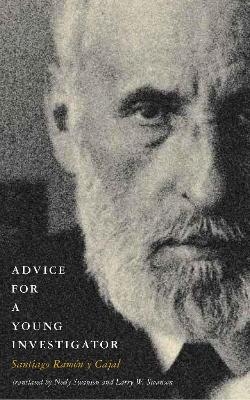
Advice for a Young Investigator
MIT Press (Verlag)
978-0-262-18191-4 (ISBN)
- Keine Verlagsinformationen verfügbar
- Artikel merken
Santiago Ramon y Cajal was a mythic figure in science. Hailed as the father of modern anatomy and neurobiology, he was largely responsible for the modern conception of the brain. His groundbreaking works were New Ideas on the Structure of the Nervous System and Histology of the Nervous System in Man and Vertebrates. In addition to leaving a legacy of unparalleled scientific research, Cajal sought to educate the novice scientist about how science was done and how he thought it should be done. This recently rediscovered classic, first published in 1897, is an anecdotal guide for the perplexed new investigator as well as a refreshing resource for the old pro.
Cajal was a pragmatist, aware of the pitfalls of being too idealistic-and he had a sense of humor, particularly evident in his diagnoses of various stereotypes of eccentric scientists. The book covers everything from valuable personality traits for an investigator to social factors conducive to scientific work.
Neely Swanson is a scholar of romance languages. Larry W. Swanson is Senior Member of the Salk Institute, Adjunct Professor in the Department of Neurosciences at the University of California, San Diego, and Investigator of the Howard Hughes Medical Institute.
Part 1 Introduction: thoughts about general methods; abstract rules are sterile; need to enlighten the mind and strengthen resolve; organization of the book. Part 2 Beginner's traps: undue admiration of authority; the most important problems are already solved; preoccupation with applied science; perceived lack of ability. Part 3 Intellectual qualities: independent judgement; concentration; passion for reputation; patriotism; taste of scientific originality. Part 4 What newcomers to biological research should know: general education; the need for specialization; foreign languages; how monographs should be read; the absolute necessity of seeking inspiration in nature; mastery of technique; in search of original data. Part 5 Diseases of the will: contemplators; bibliophiles and polyglots; megalomaniacs; instrument addicts; misfits; theorists. Part 6 Social factors beneficial to scientific work: material support; having a profession and doing research work are compatible; the investigator and his family. Part 7 Stages of scientific research: observation; experimentation; working hypotheses; proof. Part 8 On writing scientific papers: justification for scientific contributions; bibliography; justice and courtesy in decisions; description of methods; conclusions; the need for illustrations; style; the publication of scientific works. Part 9 The investigator as teacher.
| Reihe/Serie | A Bradford Book |
|---|---|
| Übersetzer | Neely Swanson, Larry W. Swanson |
| Verlagsort | Cambridge, Mass. |
| Sprache | englisch |
| Maße | 137 x 203 mm |
| Gewicht | 318 g |
| Themenwelt | Literatur ► Essays / Feuilleton |
| Naturwissenschaften | |
| ISBN-10 | 0-262-18191-6 / 0262181916 |
| ISBN-13 | 978-0-262-18191-4 / 9780262181914 |
| Zustand | Neuware |
| Haben Sie eine Frage zum Produkt? |
aus dem Bereich


